Seattle dad with children in the Israeli army hopes for peace, but supports war
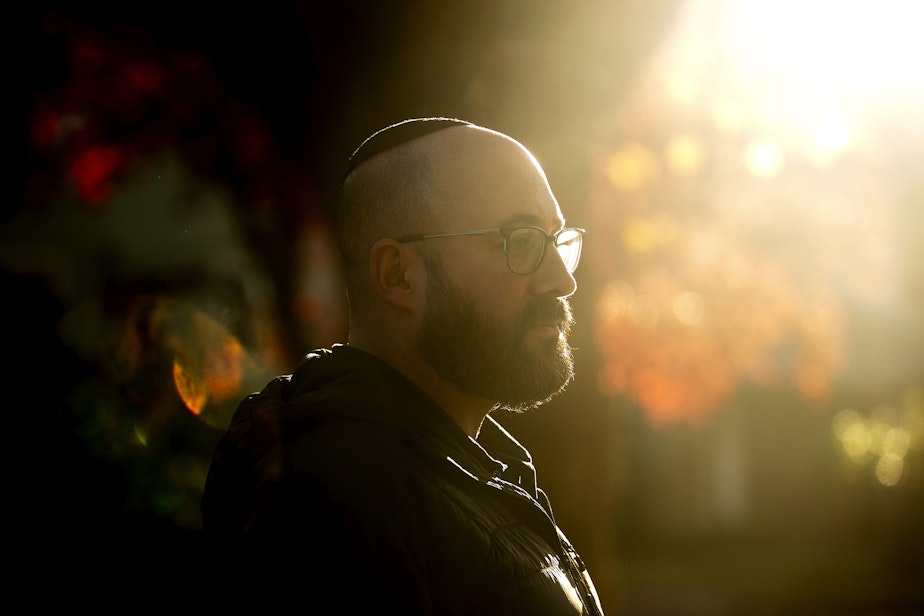
When Seattle attorney Dan Swedlow checks Instagram in the morning, it's not to distract himself from his work on labor law. He’s checking to make sure his adult children in Israel are safe and alive.
Two of Swedlow’s five children live in Israel. His 25-year-old son Shneur used to live in Kissufim, a kibbutz bordering Gaza that was among the villages Hamas attacked Oct. 7.
Shneur was attending school in Tel Aviv when the attack occurred. Now, his dad says he has been called up to join the Israel Defense Forces and help “eradicate Hamas” in Gaza.
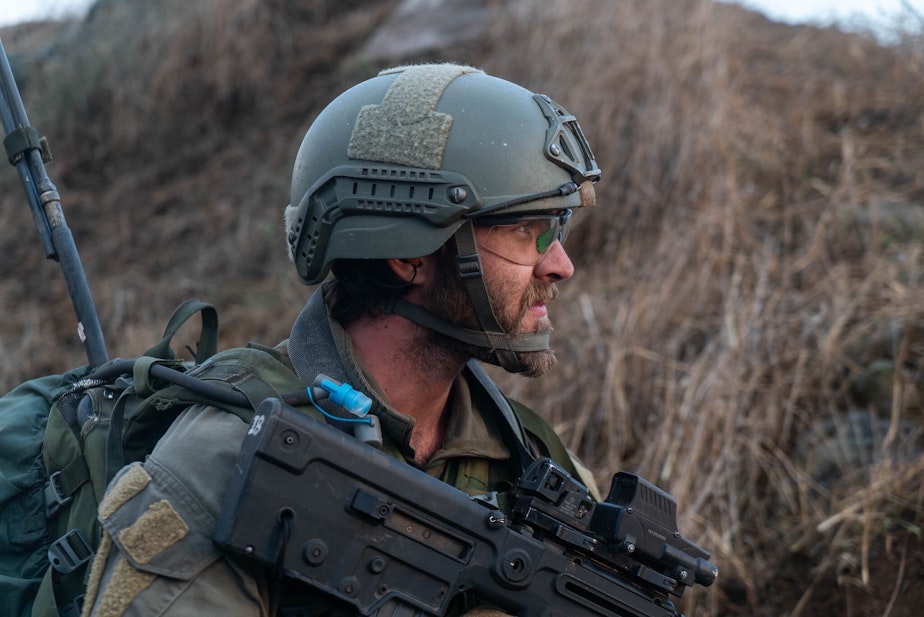
Swedlow’s 27-year-old daughter, Kayla, was on a honeymoon road trip in California on Oct. 7. She and her husband drove back to Seattle in a single day and returned to Israel soon thereafter.
Her husband, Evyatar, was out in the field less than 24 hours after their plane landed in Israel. So far, Kayla, who previously served as a combat officer in the IDF, has not been called up.
Sponsored
So, every morning, Swedlow, an active member of Seattle’s Jewish community, wakes up and checks his Instagram in hopes of seeing signs of life. He scrolls past the assortment of light-hearted posts and news updates to find evidence that his children and their spouses and friends are safe enough to post something.

“The first few weeks it was like a complete state of shock. There were moments of just total inability to function,” he said. “I would look at my computer and try to send an email and think, ‘I don’t know how to make words at all anymore.’ I’m a good lawyer and I couldn’t function. I couldn’t do simple computer stuff — emailing, communicating. I’d be sitting in my office, and I’d just break down crying.”
KUOW is sharing the stories of Seattleites impacted by the ongoing conflict between Israel and Hamas. If you would like to share your story, we want to hear it. Please email the newsroom at newsroom@kuow.org.
Despite his personal connections to the ongoing conflict, Swedlow is not in favor of an immediate ceasefire in Gaza. Before that can happen, he believes Hamas should unilaterally release more than 200 hostages taken from Israel during the Oct. 7 attack.
Sponsored
RELATED: Seattle woman fears for kidnapped relatives in Gaza after losing aunt and uncle in Hamas attack
Swedlow places responsibility for the deaths of more than 11,000 Palestinians since the war began squarely on Hamas.
“Hamas is deliberately putting its military infrastructure embedded in civilian areas, and then preventing civilians from leaving,” he said. “So, the alternative is, either you just sit back and let it continue happening, or you go into a very, very dangerous situation and put even more lives at risk.”

Swedlow said he believes it is possible for Arabs and Jews to live together peacefully. His son’s girlfriend lives in Jaffa, south of Tel Aviv. She tells him her neighborhood has come together and is united despite the ongoing conflict.
Sponsored
“Peaceful coexistence is absolutely possible. It's possible with people in Gaza. It's possible with people in the West Bank,” he said. “It's just not possible with Hamas.”
RELATED: A Palestinian American in Seattle holds her family's history close as war rages in Gaza
Swedlow has another son, Moshe, who is a 22-year-old pre-med student at the University of Washington. Swedlow said Moshe has felt unsafe as a Jewish student on campus with the increase of pro-Palestine, anti-Israeli sentiment. He has seen posters of Israeli hostages ripped down on the UW campus.
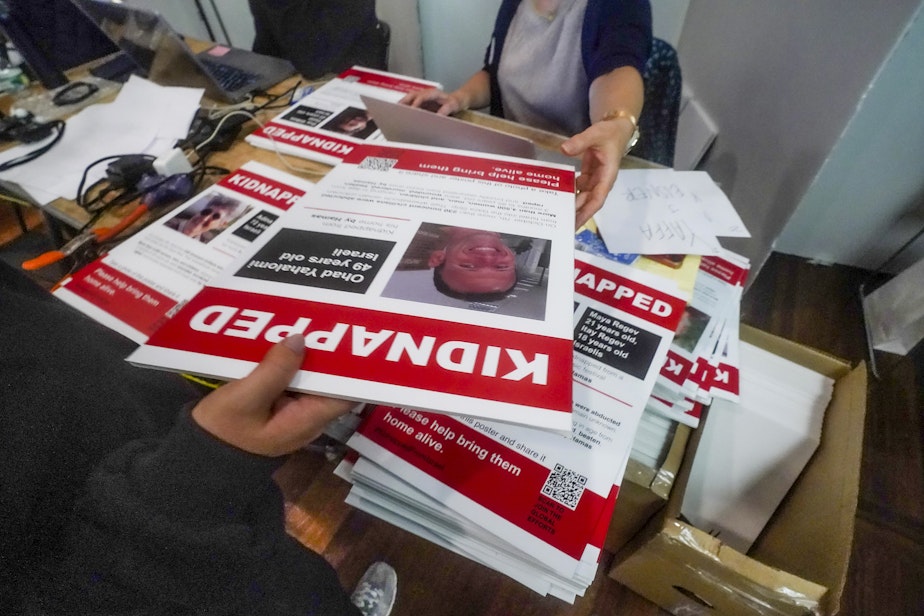
“How can you rip down a hostage poster?” Swedlow asked. “There are little kids being held hostage, people put up posters to bring awareness to that and somehow that’s wrong? That’s sending the message that I believe Hamas are freedom fighters. That’s just craziness. And it’s frustrating and upsetting.”
Sponsored
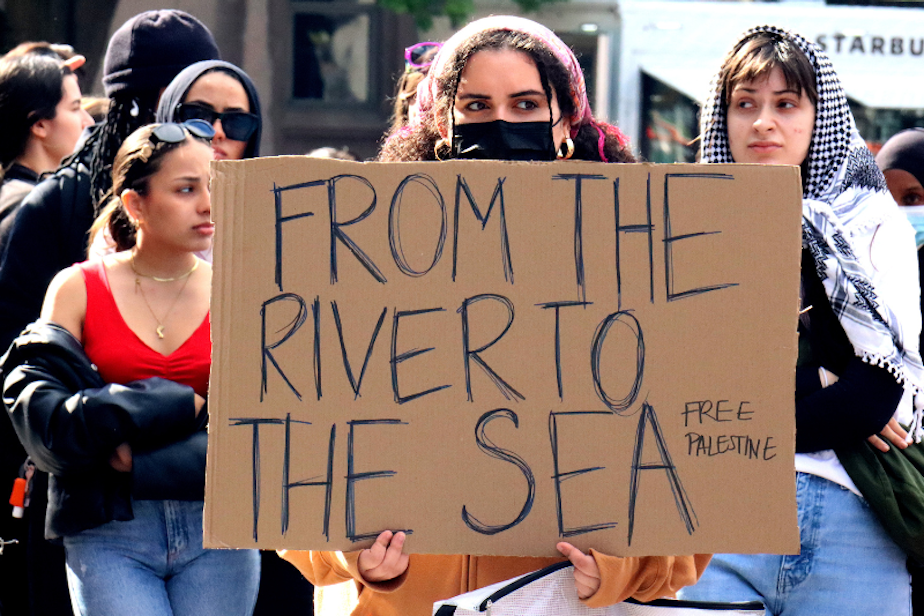
At pro-Palestine rallies, one phrase that is often repeated by speakers and on protest signs is “from the river to the sea.” While that slogan is embraced by some Palestinian and Jewish Americans as a call to free Palestine from occupation or what has been described as apartheid, for Swedlow and some others in the Jewish community, it suggests that the state of Israel is illegitimate and should be wiped out, from the Jordan River on its eastern border to the Mediterranean Sea on its western edge.
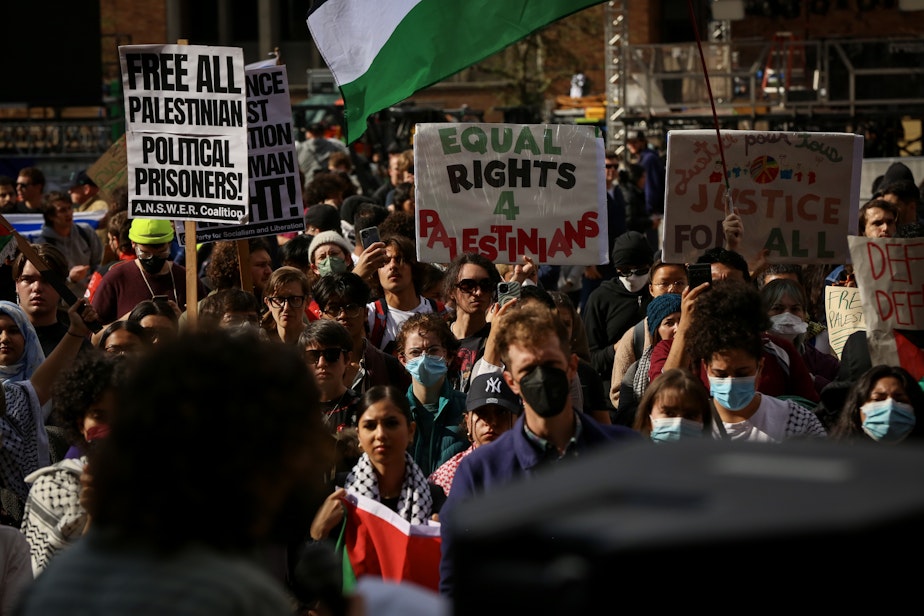
Palestinians often cite the Israel-Arab War in 1948 as the beginning of an ongoing occupation of Palestine and the oppression and displacement of millions of Palestinians.
Swedlow pointed to a long history of Jewish people being displaced. From his perspective, the vast majority of people live on land that has been won through wars, violence, and displacement.
Sponsored
He also believes the Israeli-Palestinian conflict is often mischaracterized as a battle between white people who are colonizing and oppressing people of color. The majority of Israeli Jews are Mizrahi, of Middle Eastern and North African descent.
“They were kicked out of all of the Arab countries surrounding Israel, and not just surrounding Israel, but everywhere in the Middle East and North Africa, where there were thriving Jewish communities for 1,000 or more years, and then they were utterly and completely destroyed,” he said. “And all of those folks were sent packing off to Israel, where they currently live, and are totally native to that area.”

Swedlow sees Israel as a haven for Jewish people, no matter where they live. He believes maintaining that homeland is central to sustaining a Jewish identity.
Because Hamas does not believe in the legitimacy of the Jewish state and is set on its destruction, Swedlow believes the only solution for Israel at the moment is to defeat Hamas and kill its fighters.
“You can’t really compromise with an entity that is completely hell-bent on your absolute annihilation,” he said. “You just can’t.”
Meanwhile in Seattle, Swedlow said the attack on Israel and the ongoing Israeli response has united the Jewish community, even as it has exacerbated rifts between Jewish people and pro-Palestine demonstrators.
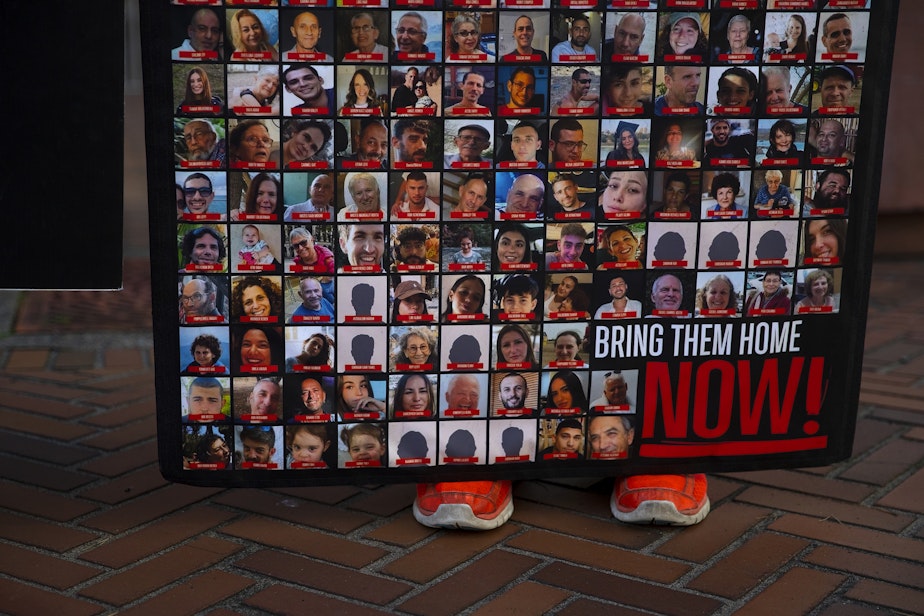
Swedlow himself has attended protests, including one outside the federal building, where a group of people sat cross-legged, with their arms behind their backs, blindfolded, while someone read out the names and ages of the Israeli hostages.
“Somebody was screaming at us, ‘Free Palestine!’ and, ‘Genocide!’ and that kind of stuff,” he said. “That person eventually left, but it was still extremely painful physically to sit like that, and emotionally to sit and listen to all of those names.”
Thanks to an online group for Jewish parents, Swedlow has grown close to others who, like him, have children and relatives called up for active duty.
He recently checked in on a friend who has an adult child heading into combat with a dangerous unit. His son would be out of contact for several weeks.

“I know what that feels like, and I don’t know how many other people do,” Swedlow said. “Even though I’m out here in Seattle, pretty far away from what’s going on over there, there are people in the community who are in the same place as me.”


